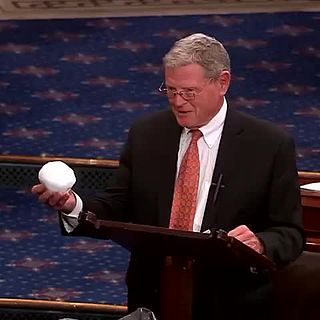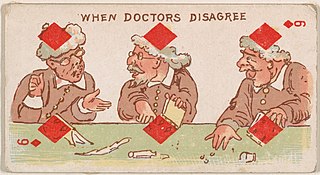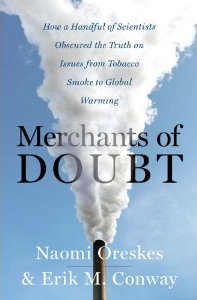Related Research Articles
In law, a witness is someone who, either voluntarily or under compulsion, provides testimonial evidence, either oral or written, of what they know or claim to know.
A conflict of interest (COI) is a situation in which a person or organization is involved in multiple interests, financial or otherwise, and serving one interest could involve working against another. Typically, this relates to situations in which the personal interest of an individual or organization might adversely affect a duty owed to make decisions for the benefit of a third party.
The scientific community is a diverse network of interacting scientists. It includes many "sub-communities" working on particular scientific fields, and within particular institutions; interdisciplinary and cross-institutional activities are also significant. Objectivity is expected to be achieved by the scientific method. Peer review, through discussion and debate within journals and conferences, assists in this objectivity by maintaining the quality of research methodology and interpretation of results.
The politicization of science for political gain occurs when government, business, or advocacy groups use legal or economic pressure to influence the findings of scientific research or the way it is disseminated, reported or interpreted. The politicization of science may also negatively affect academic and scientific freedom, and as a result it is considered taboo to mix politics with science. Historically, groups have conducted various campaigns to promote their interests in defiance of scientific consensus, and in an effort to manipulate public policy.

Credibility comprises the objective and subjective components of the believability of a source or message. Credibility dates back to Aristotle theory of Rhetoric. Aristotle defines rhetoric as the ability to see what is possibly persuasive in every situation. He divided the means of persuasion into three categories, namely Ethos, Pathos, and Logos, which he believed have the capacity to influence the receiver of a message. According to Aristotle, the term "Ethos" deals with the character of the speaker. The intent of the speaker is to appear credible. In fact, the speaker's ethos is a rhetorical strategy employed by an orator whose purpose is to "inspire trust in his audience". Credibility has two key components: trustworthiness and expertise, which both have objective and subjective components. Trustworthiness is based more on subjective factors, but can include objective measurements such as established reliability. Expertise can be similarly subjectively perceived, but also includes relatively objective characteristics of the source or message. Secondary components of credibility include source dynamism (charisma) and physical attractiveness.
Proctor is a person who takes charge of, or acts for, another.
Together, legal psychology and forensic psychology form the field more generally recognized as "psychology and law". Following earlier efforts by psychologists to address legal issues, psychology and law became a field of study in the 1960s as part of an effort to enhance justice, though that originating concern has lessened over time. The multidisciplinary American Psychological Association's Division 41, the American Psychology–Law Society, is active with the goal of promoting the contributions of psychology to the understanding of law and legal systems through research, as well as providing education to psychologists in legal issues and providing education to legal personnel on psychological issues. Further, its mandate is to inform the psychological and legal communities and the public at large of current research, educational, and service in the area of psychology and law. There are similar societies in Britain and Europe.

William McDougall FRS was an early 20th century psychologist who was a professor at University College London, University of Oxford, Harvard University and Duke University. He wrote a number of influential textbooks, and was important in the development of the theory of instinct and of social psychology in the English-speaking world.

An opinion is a judgment, viewpoint, or statement that is not conclusive, rather than facts, which are true statements.

False balance, known colloquially as bothsidesism, is a media bias in which journalists present an issue as being more balanced between opposing viewpoints than the evidence supports. Journalists may present evidence and arguments out of proportion to the actual evidence for each side, or may omit information that would establish one side's claims as baseless. False balance has been cited as a cause of misinformation.
The National Parents Organization (NPO) is a 501(c)(3) non-profit charitable and educational organization in the United States that promotes shared parenting. The organization focuses on family court reform, research, and public education with the goal to make shared parenting the general norm for separated parenting.

The University of Georgia is a private university founded in Tbilisi, in the country of Georgia, in 2004.

Within the sociology of knowledge, agnotology is the study of deliberate, culturally induced ignorance or doubt, typically to sell a product, influence opinion, or win favour, particularly through the publication of inaccurate or misleading scientific data (disinformation). More generally, the term includes the condition where more knowledge of a subject creates greater uncertainty.

The T.M.C. Asser Instituut is a professional inter-university centre of knowledge and research. The institute carries out research in private and public international law, European law, as well as all other related fields, including international commercial arbitration, international sports law and international humanitarian and criminal law. It was established in 1965 in The Hague and it is affiliated with the University of Amsterdam. Since September 2021 the institute also hosts the Special Chair Arms Control Law.

Sustained scientific debate, sometimes scientific controversy or persistent disagreement, is any a substantial disagreement among scientists. A scientific controversy may involve issues such as the interpretation of data, which ideas are most supported by evidence, and which ideas are most worth pursuing.
Thomas Risse is a Berlin-based international relations scholar. He currently acts as chair of the Center for Transnational Relations, Foreign and Security Policy at the Otto Suhr Institute for Political Science of Freie Universität Berlin. Furthermore, he has several engagements in German and international research networks, and heads the PhD program of the Hertie School of Governance in Berlin.
In re: Gill is a landmark Florida court case that in 2010 ended Florida's 33-year ban on adoptions by homosexuals. In 2007, Frank Martin Gill, an openly gay man, had petitioned the circuit court to adopt two boys that he and his partner had been raising as foster children since 2004. Gill was prohibited from adopting by a 1977 Florida law prohibiting adoption by gay men and lesbians in that state. After a four-day trial challenging the law, on November 25, 2008, Judge Cindy S. Lederman declared the ban violated the equal protection rights of the children and their prospective parents under the Florida Constitution, and granted Gill's adoption request.

Merchants of Doubt: How a Handful of Scientists Obscured the Truth on Issues from Tobacco Smoke to Global Warming is a 2010 non-fiction book by American historians of science Naomi Oreskes and Erik M. Conway. It identifies parallels between the global warming controversy and earlier controversies over tobacco smoking, acid rain, DDT, and the hole in the ozone layer. Oreskes and Conway write that in each case "keeping the controversy alive" by spreading doubt and confusion after a scientific consensus had been reached was the basic strategy of those opposing action. In particular, they show that Fred Seitz, Fred Singer, and a few other contrarian scientists joined forces with conservative think tanks and private corporations to challenge the scientific consensus on many contemporary issues.
A manufactured controversy is a contrived disagreement, typically motivated by profit or ideology, designed to create public confusion concerning an issue about which there is no substantial academic dispute. This concept has also been referred to as manufactured uncertainty.

The LudovikaUniversity of Public Service is a higher educational institution in Budapest, Hungary. Established in 2012, it is one of the youngest universities in Central and Eastern Europe; however, its faculties as former independent colleges look back much earlier.
References
- ↑ Proctor, Robert .N. (2004). "Should medical historians be working for the tobacco industry?". The Lancet. 363 (9416): 1174–1175. doi:10.1016/S0140-6736(04)15981-3. PMID 15081644. S2CID 11700389.
There is a saying in American public-relations circles that for every PhD there is an equal and opposite PhD
- ↑ Lewontin, Richard C.; Singh, Rama S. (2001). Thinking about evolution: historical, philosophical, and political perspectives. Volume two . Robert N. Proctor. Cambridge, UK: Cambridge University Press. pp. 568. ISBN 0-521-62070-8.
'For every Ph.D. there is an equal and opposite Ph.D.' Gibson's Law
- ↑ Zingrone, N. (March 2002). "Controversy and the problems of parapsychology". Journal of Parapsychology . 66 (19): 3. Retrieved 2007-08-05.
...controversy flows from a "truth" that encapsulates the ease with which both prosecuting attorneys and defense attorneys can always find a crucial and credible scientific expert to testify on behalf of their own case and against the crucial and credible scientific expert hired by their opponents
- ↑ Hess, David J. (1997). Science studies: an advanced introduction. New York: New York University. p. 94. ISBN 0-8147-3564-9.
Proctor borrowed "Gibson's law" from public relations research and introduced the term "smokescreen effect" as two important techniques for inducing controversy to promote interests.
- ↑ Preston, Ivan J. (1980). "Researchers at the Federal Trade Commission—Peril and Promise". Current Issues and Research in Advertising. 3 (1). Routledge: 1--15. doi:10.1080/01633392.1980.10505291.